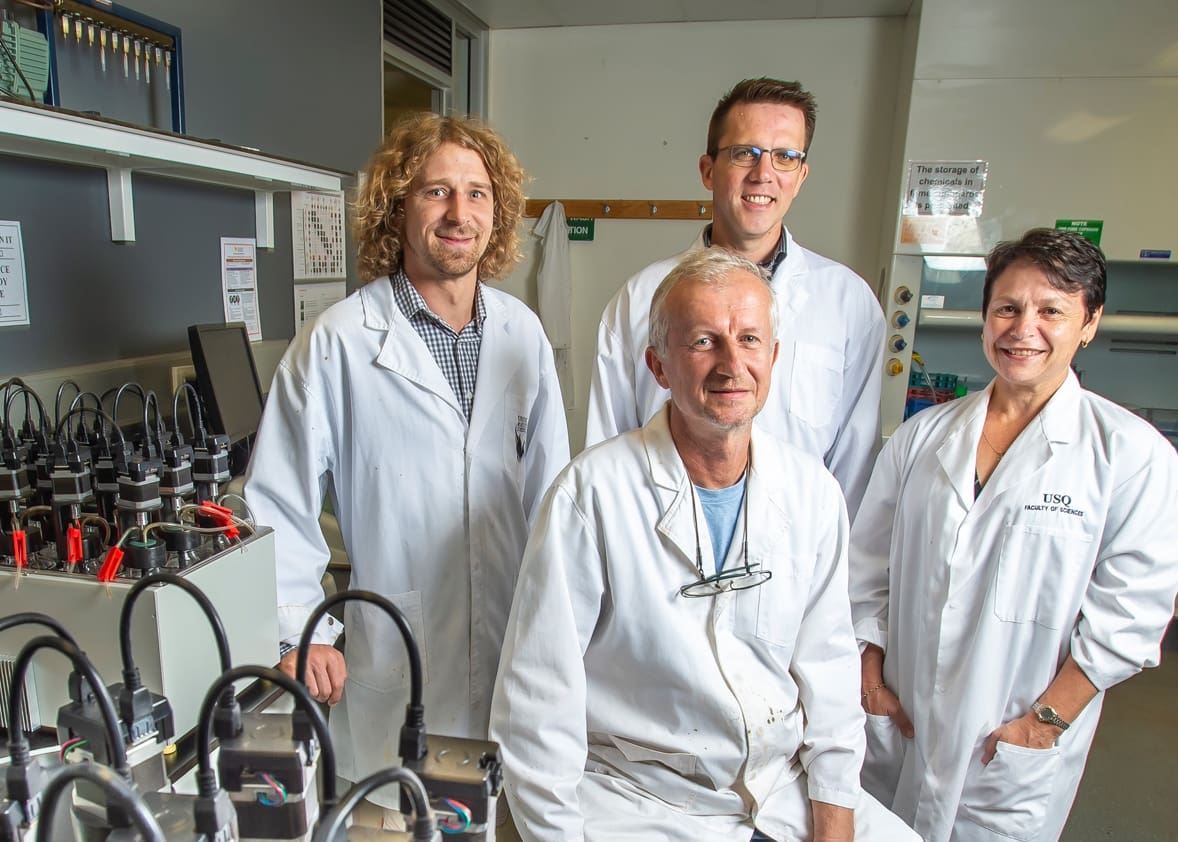
The USQ biogas team of Torben Grell, Dr Serhiy Marchuk, Dr Stephan Tait and Professor Bernadette McCabe are working on the national Pilot to Paddock project. Photo: USQ Photography
THE Pilot to Paddock (P2P) project is looking for ways to use manure to increase and support the productivity and profitability of the Australian dairy, pork, chicken and cropping industries.
Funded by the Department of Agriculture, Water and the Environment’s Smart Farming Partnerships Program, the nationwide research is focused on taking manure from agricultural industries and finding the best ways to turn it into valuable products for on-farm re-use.
The University of Southern Queensland (USQ) is the technical lead, and other organisations involved are: animal and avian health consultancy Scolexia; Agriculture Victoria; University of Western Australia, and Queensland’s Department of Agriculture and Fisheries.
Senior Research Fellow from USQ’s Centre for Agricultural Engineering, Dr Stephan Tait, said the team was studying different treatment methods for manure and then investigating the products that result for environmental and profitability credentials.
“We’re also involved in two manure-processing methods (and) researching manure-separation technologies, as well as anaerobic digestion tech where manure is turned into a renewable fuel or concentrated organo-fertiliser,” Dr Tait said.
“We selected farms in Victoria, South Australia, Western Australia and Queensland taking part in the project, and in this way are working with farmers to develop real ag solutions”.
“On one farm in WA we’ve already seen good results from testing last year, where a dairy farmer is turning manure into compost to restore the health of soils that have been depleted over time because of a lack of carbon input.
“He was using more and more fertiliser at a great cost to his operation, but getting less and less return from his land.
“Since he’s been using the composted product, his soil health has increased dramatically.
“The other great thing is that he produces his own compost and now does not have to buy any more, and as a result is saving a lot of money.”
The Toowoomba research team has recently welcomed Torben Grell, a USQ PhD student based on a research dairy farm in Western Australia, to work on the project.
Mr Grell will be leading the manure-separation technology investigations.
“It’s a great feeling knowing I’m working on research that’s going to improve the protection and resilience of soils, water and vegetation which are so important to agriculture and the regions that rely on it,” Mr Grell said.
USQ is already involved in developing innovative water, energy and nutrient technologies which seek to minimise environmental impacts by reducing farm inputs, nutrient losses and greenhouse gas emissions.
Source: USQ

HAVE YOUR SAY